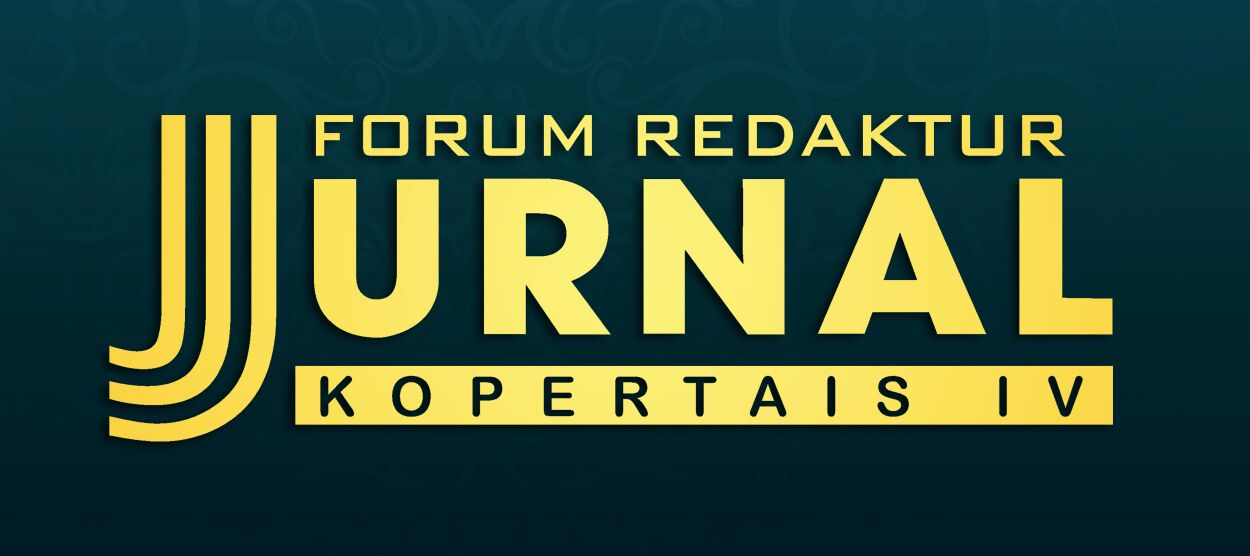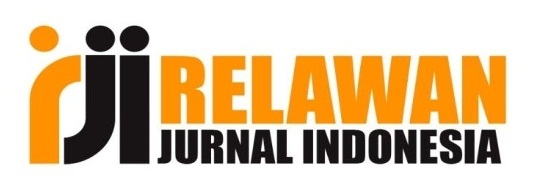APLIKASI COOPERATIF LEARNING TIPE GROUP INVESTIGATION ( GI) PADA MATA PELAJARAN SEJARAH KEBUDAYAAN ISLAM DI KELAS V FAVORIT MI SALAFIYAH SYAFI’IYAH SUKOREJO SITUBONDO, TAHUN PELAJARAN 2015/2016
Abstract
Abstract:  One of the problems that also exist in the Madrasah Ibtidaiyah in learning is learning to SKI (history of Islamic culture). This material is primarily material that is interesting, but sometimes in the pelaksanaanya become not interesting for students. This appears sometimes students don't listen well and the results of the evaluation of the results has not yet reached the target of KKM. The issues examined in this research is the application of Methods of learning Group Investigation  (GI) at the basic education level students (MI). The approach used in this study is a qualitative approach to the type of this action research including research action class. Class action research design starts from the beginning to the end of the study. Based on the research results it can be concluded that with the implementation of the pembelajara cooperative Group type Investigation (GI)  on subjects of history of Islamic culture goes well, students look happy, active and enthusiastic because in the process of cooperative learning Group-type Investigation (GI). Observation data analysis results are known, the application of the cooperative learning Group-type Investigation (GI) can improve learning outcomes grade V Syaf'iyah Salafiyah MI favorite Sukorejo Situbondo lessons year 2011/2012. It can be seen from the results of observations against the liveliness, the will, the ability and responsibility of students, as well as the achievement of student learning ketuntasan criteria (KKM) overall. Improvement of the learning outcomes can be seen from the value of the percentage of students with daily exams ketuntasan in classical and individual attain a value of 94%.
Keywords; SKI, Cooperative learning, Group Investigation
Downloads
References
Lie. Anita (2007). Cooperative Learning. Jakarta: PT Gramedia. Cet. Ke-5.
Passi, Anu & Sanna Vahtivuori, (2007), From Cooperative Learning Towards Communalism, (online) tersedia: http://www.edu.helsinki.fi/media/mep8/ passi_vahtivuori.pdf p262, 12 Mei 2011
Arikunto, S. (2001). Prosedur Penelitian. Jakarta : Rineka Cipta.
Arikunto, S. (2006). Penelitian Tindakan Kelas. Jakarta : PT Rineka Cipta
Brown, H., & Ciuffetelli, D.C. (Eds.). (2009). Foundational methods: Understanding teaching and learning. Toronto: Pearson Education.
Cajobs, 2009, Cooperative Learning, (online) tersedia : http://www.readingmatrix.com/ conference/pp/proceedings/jacobs.pdf, 12 Mei 2011
Chauhan, S.S. (1979) Innovations in teaching-learning process. New delhi Vikas publishing house PVT LTD
Daniel Zingaro, (2008) Group Investigation : Theory and Practice, Ontario Institute for Studies in Education, Toronto, Ontario, (online) tersedia: http://www.danielzingaro.com/gi.pdf p1, 15 Mei 2011
David W. Johnson, Roger T. Johnson, and Mary Beth Stanne, (2000), Cooperative Learning Methods: A Meta-Analysis, University of Minnesota, (online) tersedia: http://www.tablelearning.com/ uploads/File/EXHIBIT-B.pdf p6, 12 Mei 2011
DePorter, B. (2002): Quantum learning, bandung : KAIFA
Djahiri, K (2003). Pemilihan Strategi dan Media Pembelajaran dan Portofolio. Learning and Evaluation Based. Jakarta: Depdiknas. DIKYANMAS KPK RI (2007)
Djamarah, B. (2006) Strategi Belajar Mengajar. Jakarta : PT. Rineka Cipta
Dr. Tzu-Pu Wang, (2009), Applying Slavin’s Cooperative Learning Techniques to a College EFL Conversation Class, The Journal of Human Resource and Adult Learning Vol. 5, Num. 1, June 2009, Department of Applied English, Hsing Wu College, (online) tersedia: http://hraljournal.com/Page/13%20Tzu-Pu%20Wang.pdf. P.113, 12 Mei 2011
Haekal H. ( 2000) Hayaturrasul (Kehidupan Muhammad). Beirut.
Hakimtek, (2010), Model Pembelajaran Kooperatif, online (tersedia) http://blog.unm.ac.id/hakim/ 2010/02/16/model-pembelajaran-kooperatif, 12 Mei 2011
Halim Soebahar, H.abd.(2002) Wawasan baru pendidikan Islam. Kalam mulia.
Halim Soebahar, H.Abd.(2009) Matrik Pendidikan Islam. Pustaka marwa.
Harefa, A. (2005). Menjadi Manusia Pembelajar. Jakarta : Buku Kompas.
Hariwijaya, M., Djaelani, BM. (2004). Teknik Menulis Skripsi dan Tesis. Yogyakarta : Hangar Kreator.
Heather Coffey (2008), Cooperative learning, (online) tersedia : http://www.learnnc.org/lp/pages/4653, 12 Mei 2011
Hobry, H. (2007). Penelitian Tindakan Kelas ( PTK), untuk guru dan praktisi: Jember.
http://blog.tp.ac.id/penerapan-model-pembelajaran-kooperatif-tipe-group-investigation-untuk-meningkatkan-hasil-belajar-mata-pelajaran-produktif-multimedia-siswa-kelas-x-smkn-1-cerme-gresik
___, Cooperative_learning, online tersedia http://en.wikipedia.org/wiki/-Cooperative_learning.html, 12 Mei 2011
____, (2007), History of Islam, (online) tersedia: http://en.wikipedia.org/ wiki/History_of_Islam, 15 Mei 2011
Jasmine, J. (2007). Panduan Praktis Mengajar Berbasis Multiple Intelligences. Bandung : Nuansa.
Joyce, B dan Weil M. (1980) Model of teaching, Engleword Cliffs. New Jersey prentice-hall Inc.
Kiranawati. 2007. Metode Investigasi Kelompok (Group Investigation ). (online) tersedia: http: //gurupkn.wordpress.com/2007/11/13/metode-investigasi-kelompok-group-investigation, 12 Mei 2011
Majid,A.(2007).Perencanaan Pembelajaran.Bandung : Rosda.
Minhaji, (2004), Kepemimpinan Kepala Sekolah Dalam Pengelolaan SD Unggulan, Tesis pada STAI Al-Khoziny Sidoarjo; Tidak Diterbitkan.
Moleong, L. J. (2000) Metode Penelitian Kualitatif, Bandung ; Remaja Rosdakarya
Mudrika,T(2007). Penerapan Model Investigasi Kelompok Untuk Meningkatkan kemampuan Pemecahan Masalah Matematika Siswa SMP. Skripsi pada FKIP UPI Bandung: Tidak Diterbitkan.
Mulyasa, E. (2008). Kurikulum Berbasis Kompetensi Konsep karakteristik dan Implementasi. Bandung : PT. Remaja Rosda karya.Ritonga,
Nurhadi, dkk. ( 2004) Pembelajaran Kontekstual dan penerapannya dalam KBK Universitas Negeri Malang.
Prabowo, N.(2010). Pembelajaran Matematika Dengan Mnggunakan Model Investigasi Kelompok Untuk Meningkatkan Hasil Belajar Siswa Pada Mata Pelajaran Teknologi Informaasi dan Kominikasi.Skripsi FKIP UPI Bandung: tidak Diterbitkan.
Purwanto, MN. (1984). Prinsip-prinsip dan Teknik Evaluasi Pengajaran. Bandung : PT. Remaja Rosda karya.
Ridwan, (2005), Pengertian Sejarah Menurut Beberapa Tokoh, (online) tersedia, http://ridwanaz.com/umum/sejarah/pengertian-sejarah-pengertian-sejarah-menurut-beberapa-tokoh/ 15 Mei 2011
Rita Rani Mandal, (2009), Cooperative Learning Strategies to Enhance Writing Skill// The modern jourrrnal of appllied llinguistics, Volume 1:2 March 2009. P96, (online) tersedia : http://mjal.org/Journal/Coop.pdf, 12 Mei 2011
Sagala,S. (2007) Konsep dan Makna Pembelajaran.Bandung : Alfabeta.
Sanjaya, W. (2007). Strategi Pembelajaran. Jakarta: Kencana.
Sanjaya,W.(2008). Kurikulum dan Pembelajaran.Jakarta: Kencana.
Silberman, ML. (2006). Active Learning 101 Cara Belajar Siswa Aktif. Bandung : Nusamedia.
Siti Maesaroh. 2005. Efektivitas Penerapan Pembelajaran Kooperatif Dengan Metode Group Investigation Terhadap Hasil Belajar Matematika Siswa. Jakarta: Universitas Islam Negeri Syarif Hidayatullah.
Slameto. 1991. Belajar dan Faktor-faktor yang mempengaruhinya. Jakarta : Rineka Cipta.
Solihatin, E., dkk. (2005). Psikologis Belajar. Jakarta : Logos.
Subana, et al. (2000). Statistik Pendidikan. Bandung : Pustaka Setia.
Sugiyono. (2007) Metode Penelitian Pendidikan. Bandung : Alfabeta.
Surakhmad, W. (1980). Metodologi Pengajaran Nasional. Bandung : Jemmars.
Copyright (c) 2016 AL-MURABBI: Jurnal Studi Kependidikan dan Keislaman

This work is licensed under a Creative Commons Attribution-ShareAlike 4.0 International License.











